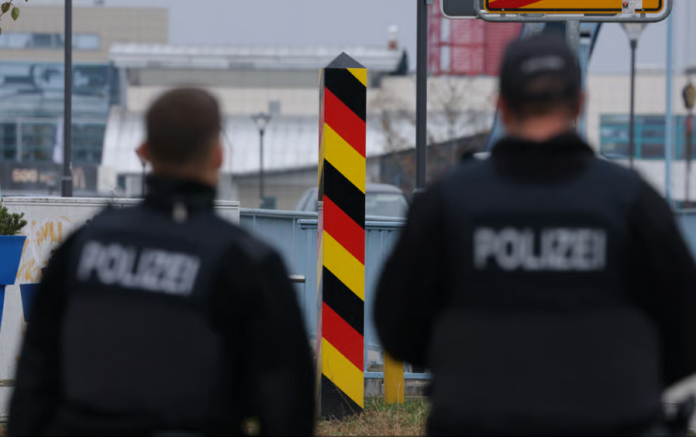The German government is weighing whether to impose checks on the border with Poland in order to stem an influx of asylum seekers, but tense relations between the two countries and now an open diplomatic row may complicate those plans, according to Politico.
Chancellor Olaf Scholz’s government is under heightened pressure to crack down on rising levels of irregular migration, with many asylum seekers now coming into the country over the Polish and Czech borders. Officials in Berlin say the government is now in discussions with Poland and the Czech Republic over introducing temporary border checks.
But at a political rally over the weekend, Scholz linked the current border crisis with an alleged visas-for-bribes scandal that has rocked Poland’s anti-immigrant government just weeks ahead of a national election in that country.
“I don’t want Poland to simply wave people through and then have a discussion about our asylum policy afterwards,” Scholz told a crowd during a political rally in the Bavarian city of Nürnberg. Scholz went on to demand that the Polish government “clarify” an alleged scandal in which “some visas have been distributed for money” in Poland.
The chancellor was referring to recent accusations that officials in Polish consulates have handed out thousands of temporary visas, granting EU access in return for bribes.
Poland’s foreign minister, Zbigniew Rau, shot back at Scholz in a post on X, formerly Twitter. The chancellor’s remarks, he said, “indicate an attempt to interfere in the internal affairs of the Polish state and the ongoing electoral campaign in Poland.”
Rau asked that Scholz “respect Poland’s sovereignty and refrain from statements that damage our mutual relations.”
Tensions between Germany and Poland had already risen amid a Polish election campaign in which Poland’s ruling Law and Justice (PiS) party has often targeted Germany, including by demanding that the German government pay World War II reparations. (Germany has rebuffed that demand.)
On Monday, a spokesperson for German Interior Minister Nancy Faeser told reporters that it may be necessary to carry out controls on the Polish and Czech borders in order to crack down on the “criminal gangs” that illegally smuggle migrants into the country.
Some 204,000 people requested asylum in Germany within the first eight months of 2023, 77 percent more than the same period last year. Friedrich Merz, the leader of Germany’s center-right Christian Democrats, has warned that German municipalities are “hopelessly overwhelmed” by the influx.
At the same time, the far-right Alternative for Germany is rising in the polls, and even the center-left Greens, part of Germany’s three-party coalition government, have changed tack of late and are now calling for tougher measures to curb migration.
On Monday, Scholz’s spokesperson, Steffen Hebestreit, rejected the notion that the chancellor is meddling in Poland’s domestic affairs. At the same time, Germany would keep “pressing” Warsaw to clear up the “massive accusations” regarding the alleged visa scandal, Hebestreit said.
The alleged visa scandal only plays a relatively small part in the larger migration flows over the Polish-German border, according to experts. Instead, Germany’s borders with Poland and the Czech Republic have become the preferred route for smugglers.
Despite the recent acrimony, talks between Germany and Poland over the potential imposition of border checks appear to be progressing. Faeser intends to speak to her Polish counterpart by phone this week in order to hash out a common position, a ministry spokesperson said Monday.


